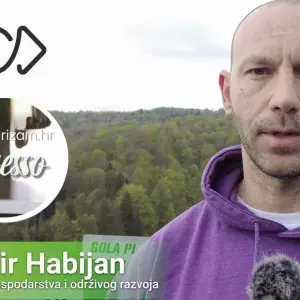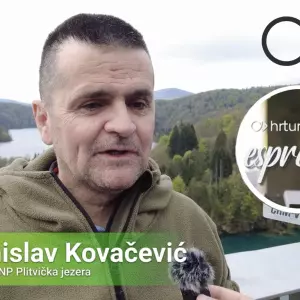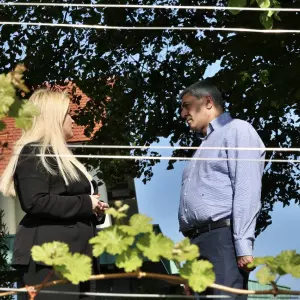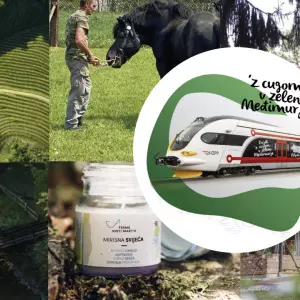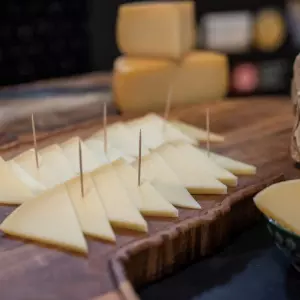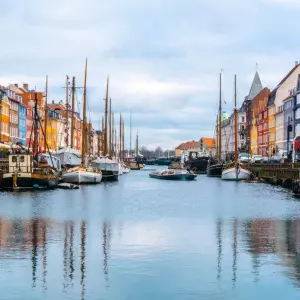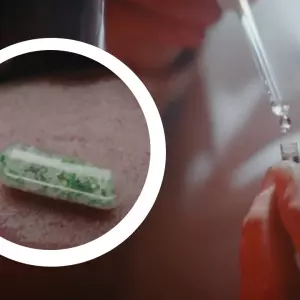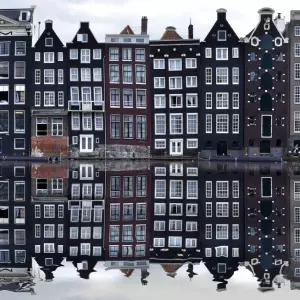Sustainable tourism at first hand: a recipe Carnian Alps
The Carn Alps are a mountain group in the Southern Limestone Alps. They stretch on the Austrian-Italian border. They were named after the Illyrian tribe Karni. They stretch for about 110 kilometers, between the Gailtal valley in the east and Sextenbach in the west. The highest peak is the Hohe Warte at 2.780 meters, and the most famous is the Plöcken pass (Wikipedia).
Altitude: 2.782 m
Top: Coglians
Provinces: Udine
Earth: Italija
Clans: Monte Croce Carnico pass, Passo Monte Croce
Zoncolan is a mountain in the Karina Alps chain with the highest peak at 2.000 meters above sea level. The starting point of the cable car is on a plateau 1.300 meters above sea level. There are free parking lots, one hotel, restaurant, ski equipment rental and service, ski school. The starting point for skiing can be reached from Sutri by a winding but well-maintained road in about ten minutes. Two four-seaters transport skiers quickly and comfortably to the ski slopes. The total length of the trails is 22 kilometers, 9 kilometers blue, 8 red and 5 black. The most important thing is that the trails are perfectly prepared and maintained. There are no crowds at the ski resort during the week at this time of year, so one can really enjoy skiing.
Sutrio was a huge sawmill and wood processing base a decade ago. Centuries-old trees were sawn for decades until the end was reached. The forests are quite depleted, there is nothing to cut for the next 50 years. Admittedly, we met trucks with Croatian license plates on the road that were transporting logs to this area. However, the salvation from the death of the place was found in the development of mountain tourism. Investments are made in infrastructure, but also in the local population, which strengthens its entrepreneurial capacities with the help of the public sector.
The summer season is the strongest, Italians love the mountains, and neighboring Austrians and Slovenians are frequent guests. Winter tourism is linked to alpine skiing, Zoncolan, and there is no shortage of visitors. Udine and Trieste are very close, skiers from Kvarner and Istria as well, but Slovenians, Hungarians and other European tourists are also happy to come to this small and well-equipped ski resort.
Tourist facilities
In the area that gravitates to the Zoncolan ski resort, six hotels have their doors open, and only one is located at the starting point of the Zoncolan ski slopes, on the mountain. The goal is not to create a separate resort in the mountains, but rather to maintain life in existing places. After skiing, guests return to the resort, stay there, go to dinner, shop in local shops... At the same time, the capacity under the denominator is growing "diffuse hotel". This accommodation is organized in two ways: as an entrepreneurial venture like "Da Alvisa", our hosts, the sole owners, and as an accommodation of several owners united under one reception ("integral hotel" as we speak).
Accommodation is "categorized" into three quality levels: standard, superior and deluxe. As a rule, standard accommodation is nicely decorated but in a contemporary style. The more wood, retro elements, fusion of modern and traditional, the more luxurious the accommodation.
In general, more work is done on the revitalization of the existing than on the construction of the new. The local dialect is also cultivated, which is used not only in private speech but also in public performances. Gastronomy is based on traditional domestic cuisine, which can be seen at every step pride in tradition.
What is not at all clear to some in Croatia, it is quite understandable in Italy - the local population should be involved in tourist traffic. This concept of the whole place as a hotel is actually the reality of today. The demand for such a concept is increasing, and on the other hand, the public sector of the Friuli-Venezia-Julia region encourages such a concept because it has shown good results in suppressing the demographic collapse in sensitive rural areas.
A season that lasts 10 months
We asked our hosts how much work they have, they said that they worked well even in these bad years. They work 10 months a year. They live in a house above the "Osteria", work and invest in the renovation of old buildings in the center of town. The parents and two sons, as well as their girlfriends, are all in the family business. For the latest investment of "Cjasa da Alvisa", they spent 800.000 euros, of which the regional government helped them with 200.000 euros of non-refundable incentive. The family also arranged another building where they have a wine shop, so now they operate in 4 buildings about fifty meters apart.
Thanks to the encouragement of entrepreneurial diffuse hotels as one-family ventures and those where several owners combine their facilities through one reception, this fiercely depopular area is slowly showing signs of recovery. In the last ten years, the number of inhabitants has been stable, not decreasing.
Smart tourism management
We stayed in January, in the low season. Exactly at that time and during the week, it was organized a big sports competition and in the entire Friuli – Venezia – Julia region as well as in neighboring Austria and Slovenia, so the capacities were full. Competitions are organized in a targeted manner in the period of lower demand and mostly on working days. Weekends are reserved for tourists and ski schools that are working at full steam.
It would be unfair not to mention the famous Italian Baits where local specialties, hot drinks and my favorite apple strudel are offered. Those breaks are just as important to me as going down fast and well-groomed ski slopes.
I will return to Zoncolan, Sutri, Ravascletta and Paluzza as well as some other places at the foot of the mountain. This example from practice tells us a lot about ways to preserve life in fragile, endangered, rural communities. I'm glad when I can confirm in practice everything I've been living, writing about, and working on for years. In addition, I like to ski, and this ski resort is one of the closest and better organized for short stays of a few days.
www.nedopinezic.com
Cover photo: Nedo Pinezić


